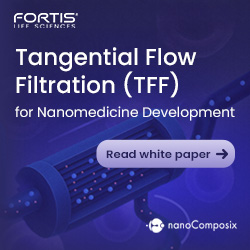Entera Bio Files Patent Applications for Inventions that Optimize its Platform Technology for Oral Delivery of Large Molecule Therapeutics
Entera Bio Ltd. recently announced it recently filed multiple US patent applications to further strengthen the company’s patent protection and support future developments.
These patent applications address an optimized platform technology intended to be utilized for future therapeutic applications. The modified platform has the potential for a higher bioavailability and lower cost of goods in comparison to competitive technologies used for the oral delivery of peptides. Additionally, the technology is designed to utilize only well-known and approved pharmaceutical excipients and, therefore, we believe it can simplify regulatory approval. In parallel with the platform technology patent, the company filed several patent applications related to the oral delivery of specific molecules or families of molecules, including parathyroid hormone (PTH), glucagon-like peptide (GLP)-1, GLP-2, human growth hormone (hGH), and others, utilizing the newly optimized oral delivery platform for indications including osteoporosis, hypoparathyroidism, non-union bone fractures, short bowel syndrome, and GH deficiency, and others.
“We believe Entera is at the forefront of innovating and improving the oral delivery of large molecule proteins. We’ve filed a substantial number of new patent applications intended to fortify our robust intellectual property position as we evaluate engaging in additional strategic partnerships,” stated Entera Chief Executive Officer, Spiros Jamas. “We see opportunities with GLP’s, orphan indications, and the extension of major categories of biologic drugs, which have the potential for oral delivery through Entera’s platform. Concurrently, we are working on global partnering of our lead asset, EB613, as it moves toward a pivotal Phase 3 for the treatment of osteoporosis.”
Entera is a leader in the development of orally delivered large molecule therapeutics for use in areas with significant unmet medical need where adoption of injectable therapies is limited due to cost, convenience, and compliance challenges for patients. The company’s proprietary, oral drug delivery technology is designed to address the technical challenges of poor absorption, high variability, and the inability to deliver large molecules to the targeted location in the body through the use of a synthetic absorption enhancer to facilitate the absorption of large molecules, and protease inhibitors to prevent enzymatic degradation and support delivery to targeted tissues. The company’s most advanced product candidates, EB613 for the treatment of osteoporosis and EB612 for the treatment of hypoparathyroidism are in clinical development. The company recently completed the phase 2 study for EB613. Entera also licenses its technology to biopharmaceutical companies for use with their proprietary compounds and, to date, has established a collaboration with Amgen Inc. For more information, visit www.enterabio.com.
Total Page Views: 1625










